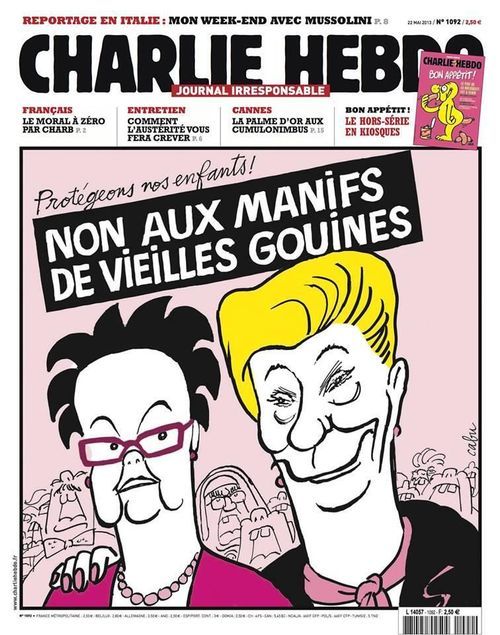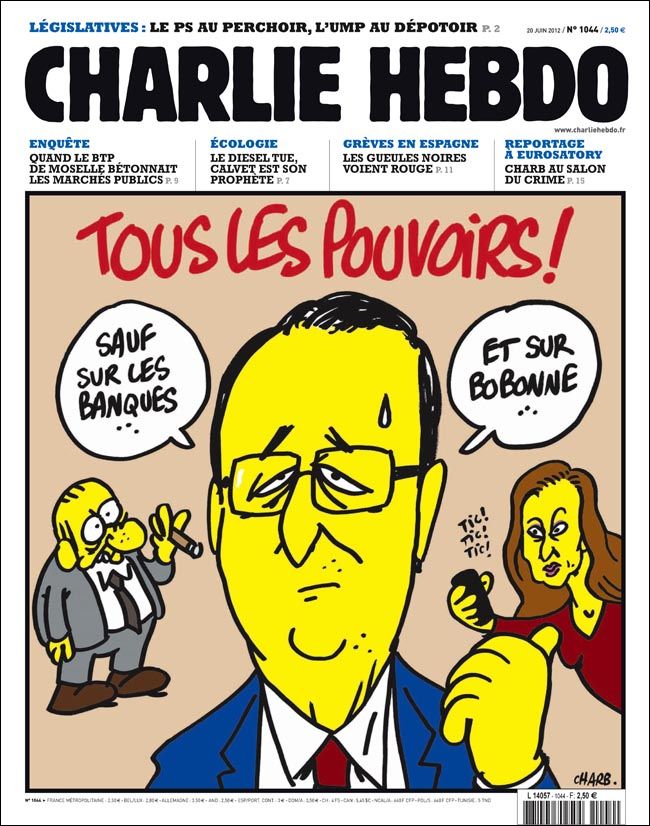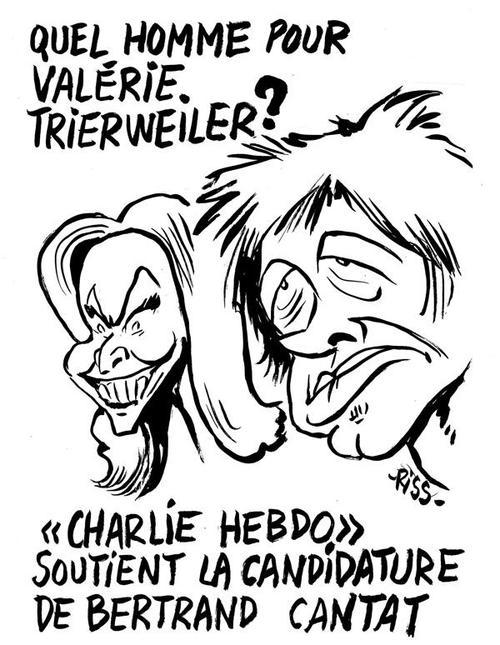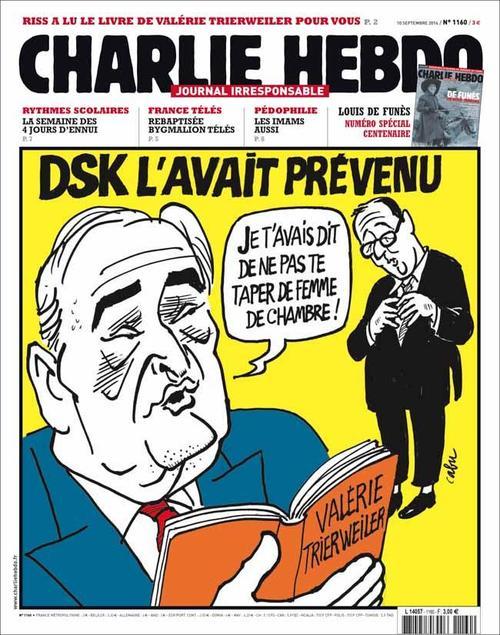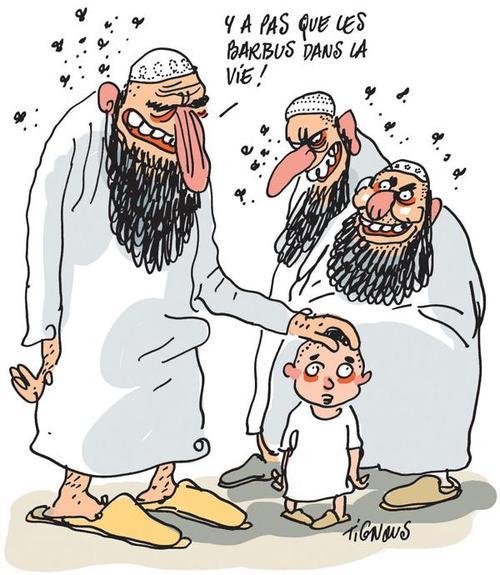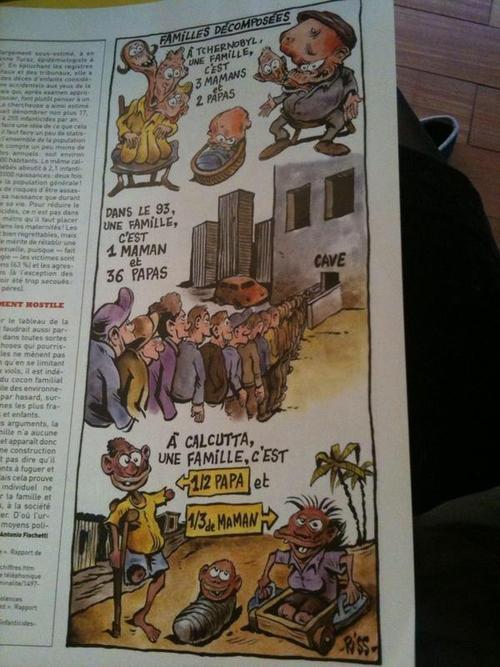The world is abuzz with talk of this week’s deadly terrorist attack on Charlie Hebdo, a French satirist newspaper. That anyone could be willing to kill someone else over cartoons—no matter how offensive they find them—is unthinkable to me. Both newspapers and private individuals should be able to be offensive without fearing for their lives. What happened this week at Charlie Hebdo is wrong, and tragic, and horrifying in the extreme.
Supporting a person or organization’s freedom of speech does not require agreeing with that speech. This is why the Westboro Baptist Church’s in-your-face homophobic protests are protected here in the U.S. But I sense something more than simple support for freedom of speech in the public response to the Charlie Hebdo tragedy. I suspect many are supporting Charlie Hebdo not simply because they support freedom of speech but also because they support the publication’s message. Charlie Hebdo frequently takes on Muslims with its satire, something the West generally gets on board with, and many atheists appreciate the publication’s willingness to satirize religion in a way others consider sacrilegious.
But as you likely know, some have accused Charlie Hebdo of racism—and also of sexism and homophobia. What is behind these accusations? Lets take a look.
[image eaten by the internet]
This cover says on top “The sexual slaves of Boko Haram are angry” and on the bottom “don’t touch our welfare benefits”.
This cover show two of the main leaders of anti-LGBT protestations in France. The title, “manif de vieilles gouines”, means “old dyke protestations”, because the best way to fight homophobia is to use lesbophobic slurs right ?
This cover shows the French president with the caption “All powerful… excepts against banks (denoucing his broken promises regarding the regulation of the banking system) and “bobonne” (a huge misogynistic slur, especially used against staying-at-home mums, an allusion to a tweet of Valérie Trierweiler, his former partner, which cause some political drama.
[image eaten by the internet]
Translation of this cover “The pope in Paris. French people as dumb as n***ger
[image eaten by the internet]
The imam or deeply Muslim guy is saying to the other one “Brother. Don’t pay 40€ for a trick with a prostitute when for this price you can have a spouse.
[image eaten by the internet]
I don’t know if it is clear but the couple are two guys. The caption says “Surrogacy : two parents and a slave”.
<
So back on Valérie Trierweiler, now former French president’s partner. This drawing says “which man for Valérie Trierweiler ? “Charlie Hebdo” suggests Bertrand Cantat (famous French singer who killed his partner, the actress Marie Trintignant, in a domestic “argument”).
This is DSK, which I think US and other people know because his rape of Nafissatou Diallo was all over the news. In this drawing, he is saying to the French president “I told you not to fuck a maid”.
This shows clearly Muslim guys saying “life is not only about bearded men” (in French, “the bearded” is often a way to speak both of islamic terrorists and deeply Muslim people).
This drawing starts with a pun, “decomposed family” (“recomposed family” meaning, for instance, a woman, her children from her previous marriage, and her new husband). The first “decomposed family” is “In Tchernobyl, a family is three mums and two dads”. The second one “In 93 (meaning Seine-Saint-Denis, a poor area of France with lot of Muslim and Black people) it is a mum and 36 dads (an allusion to gang bangs)” and the last one is “in Calcutta, a family is half a dad and a third of a mum”.
The response to the Charlie Hebdo tragedy seems to me to be going beyond supporting the publication’s freedom of speech to valorizing the publication’s writers and editors for exercising that freedom of speech the way they did—regardless of the racism, sexism, and homophobia in the images above. Perhaps this valorization is a result of these individuals’ willingness to laugh in the face of threats and to continue to publish in the face of death, and is completely unrelated to their messages. I’m not sure.
What I do know is that European newspapers shouldn’t have to be afraid of publishing cartoons of Mohammed. I look on those those who threaten violence against European newspapers that publish such cartoons much like I look on those who threaten violence against abortion clinics and abortion providers in the U.S. Violence designed to intimidate is wrong and is never called for. Law-abiding citizens should not have to worry about being murdered in some sort of vigilante-style “justice.” And of course, freedom of speech is incredibly important—arguably one of our most important rights—and is something I enjoy daily.
But while I am neither French nor a regular reader of Charlie Hebdo, what I have seen of their work is enough to give me some serious concern. While I support Charlie Hebdo’s freedom to publish cartoons like the ones above, I find the messages the publication promotes—including its racism, sexism, and homophobia—extremely objectionable. Thankfully, supporting a publication or group’s freedom of speech does not require agreeing with the speech in question.
Just as I support the Westboro Baptist Church’s right to freedom of speech—and Focus on the Family’s freedom of speech, and the American Family Association’s freedom of speech—even so I support Charlie Hebdo’s freedom of speech.

